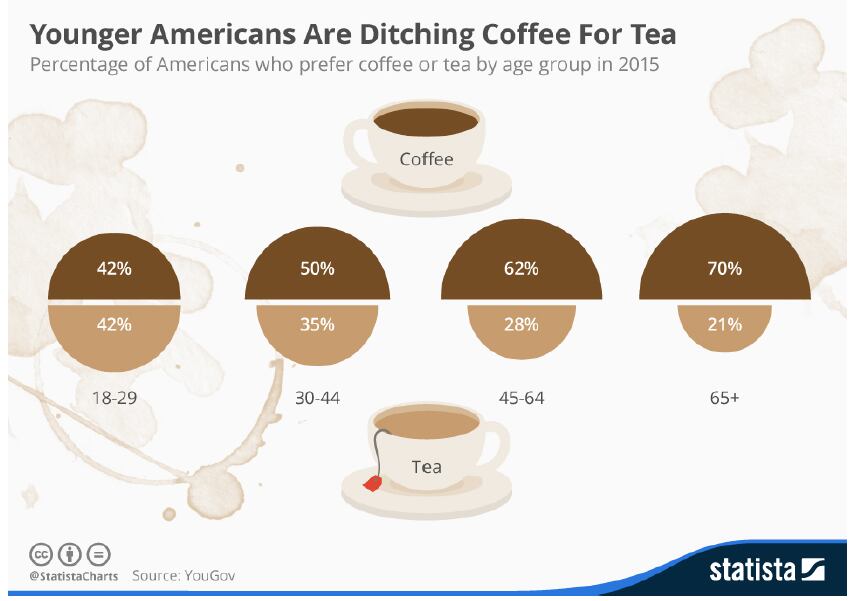Starbucks announced that it will close its 379 mall-based Teavana stores during its Q2 earnings results last week, due to persistent underperformance and to focus on its core business of hand-crafted specialty tea and coffee beverages.
“While tea has consistently been among the fastest growing categories within Starbucks stores, maintaining Teavana as a stand-alone chain dedicated to bulk-tea and accessories proved to be a less efficient and profitable strategy for driving tea consumption and revenue,” Cain told BeverageDaily.
Cain is currently the principal and executive partner of brand consulting agency Building Oz in Seattle, Washington.
Specialty tea market still going strong
The shuttering of Teavana stores does not signal weakness in the specialty tea market, however, as it is growing at nearly twice the rate of the overall US tea business with millennials driving the growth, according to Cain.

“Demographic trends suggest the industry has a long runway of expansion as younger consumers are more inclined to favor tea over coffee than their parents,” he said.
Consumers between the ages of 18 and 29 are evenly split between coffee and tea as their preferred beverage, Statista found. The number jumps to 62% of consumers between 45 and 64 years old who said they prefer coffee to tea and 70% of people above 65 and over prefer coffee to tea.
Why Teavana growth was limited
Teavana expanded from its first location as an independently owned teahouse in 1997, to hundreds of franchised locations when it was acquired by Starbucks in 2012 for $620m.
“New stores saw dramatic early sales results, but sustained sales growth beyond seasonal gifting required consumers to shift their tea purchasing from the local grocery store to the regional mall. That’s not a behavior we see happening consistently in any other specialty food or beverage industry,” Cain said.
However, the early retail success of Teavana shops did not lend itself well to outside the mall environment because it would require significant changes to its business model, according to Cain.
“Teavana's success was as a novelty gift shop in high-traffic, Class-A shopping malls,” he said.
“This required a shift in brand positioning, product assortment, retail model and customer expectations that proved too difficult within the short timeframe expected.”
Leveraging Starbucks’ strength in hand-crafted beverages would also not be able to drive incremental sales within existing Teavana stores because of the limited space and food service equipment.
“Trying to add several hundred prepared beverage transactions per day on top of shoe-box sized stores that are built to process less than 100 $50 retail transactions proved exceptionally messy,” Cain said.
Teashops shouldn’t abandon the mall
The closing of Teavana stores allows other brands dedicated to specialty tea retail to take advantage of entering former Teavana mall locations, Cain pointed out.
Mall shopping also drives half of US retail sales with 75% of Americans visiting a mall at least once a month creating opportunity for impulse purchases, according to the Journal of Shopping Center Research.
“This announcement presents a tremendous opportunity for David’s Tea and other brands who may have been blocked out of the best locations by Teavana’s non-compete clauses with landlords,” he added.
Starbucks said it would close the majority of its Teavana stores by Spring 2018 and current employees will receive applications for positions at Starbucks stores as the company is on track to create 68,000 new jobs in the US over the next five years.
Teavana's premium RTD tea line will continue to be sold in the US as part of its partnership with AB InBev and Starbucks.
